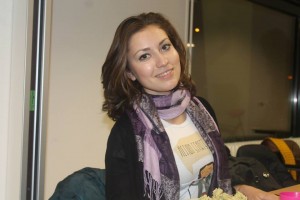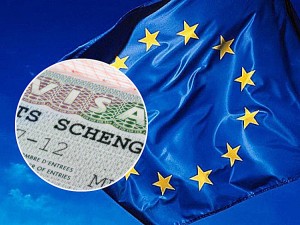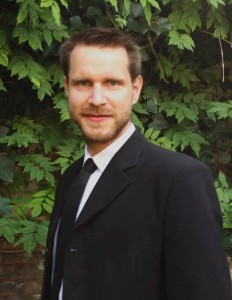AEGEE-Europe has always fought for a border-less Europe, being also among the first Pan-European associations who promotes Youth Mobility with the aim to encourage students and young people to be active in their society. However, recent changes in the Visa Directive made by the European Council, in which the Directive should be binding only for students and researchers, without the pupils, trainees, volunteers and youth workers have made it harder for AEGEE-Europe to reach its goal of free movement, but not impossible. We talked with Svetlana Danchenko, AEGEE-Ösnabruck, one of the home-based CD assistants to tell us more about the Visa action plan. We also talked a bit with Holger Schmitt, Network Director of AEGEE-Europe, to help us understand the situation better.
 The AEGEEan: To begin with, how would you describe the current situation of the Visa policy?
The AEGEEan: To begin with, how would you describe the current situation of the Visa policy?
Svetlana: Although Schengen opened borders for a lot of Europeans, Visas in Europe still exists between a lot of countries. Therefore a lot of AEGEE members especially from Eastern Europe as well as AEGEEans going to some Eastern European countries face a lot of problems during the Visa application process including while applying for Visas for AEGEE purposes as recent survey has shown. Therefore, we discussed to focus our efforts on those most relevant countries Ukraine, Russia and Turkey wanting to enter the Schengen area. At AgorAsturias we discussed further steps and what the focus of AEGEE should be to provide further action to facilitate Visa for our members from those countries.
Considering the fact that the Visa Freedom Working Group was abolished during the Autumn Agora Cagliari in 2014, did you still manage to give support to those members who needed a Visa?
Svetlana: Usually, the individual support to those members who need a Visa is done by incoming or Visa-responsible from incoming antenna. One of the primary goals now is to create the updated Visa Invitation Letters including the ones which could be used for receiving multiple entry Visa and share the experiences of obtaining such Visas with antennae including incoming Visa responsible and interested members.
Do you plan to revive the Visa Freedom Working Group, how and why? 
Svetlana: Although during Agora Cagliari the Visa Working Group was abolished due to not fulfilling the criteria, the discussions connected with its abolition as well as the extremely intensive voting session during the Agora showed that Visa issues however, are still extremely relevant for AEGEE members. Due to reform of Working Groups accepted by AgorAsturias the current idea is to revive to Visa working direction as part of the Youth Mobility working group which is one of the AEGEE focuses according to the strategy until 2017.
Which are the recent changes brought to the Visa facilitation?
Svetlana: Since CD Assistants responsible for updating Visa guidelines were chosen (in December 2014 after abolition of Visa Working Group at Agora Cagliari), our work was focused on understanding the needs of AEGEE members concerning Visa issues, setting priorities, updating the existing Visa guidelines and revising information left after Visa Working Group and attracting attention to Visa issues. During AgorAsturias we reached a lot of new people interested in Visa issues who highly contributed by bringing new ideas. Currently, together with Holger Schmitt, three CD Visa Assistants and interested people, together a team of 9, we are actively working on the future of AEGEE Visa facilitation policies.
Are there any further plans to improve the Visa facilitation? 
Svetlana: The future short term plans include updating Visa invitation letters as well as creating multiple Visa invitation letter as well as better awareness about Visa issues. The long-term plans include creating lobbying responsibles in capital cities antennae and increase in Visa facilitation lobbying on the AEGEE Europe level. Also we want to use the new Mobility Working Group to create a further platform to share the best practices between Visa responsibles and between experienced AEGEE members.
What do you think is the current position of AEGEE-Europe regarding the Visa facilitation, taking into account the proposal of the European Council in February to revise the Visa Directive and exclude the volunteers from it? Are there any future actions to be taken to solve this?
Holger: AEGEE-Europe has always been advocating for the right of free movement in Europe. We believe in a unified, diverse and border-less Europe and therefore we are following closely the so-called ’Directive of the European Parliament and of the Council on the conditions of entry and residence of third-country nationals for the purposes of research, studies, pupil exchange, remunerated and un-remunerated training, voluntary service and au pairing’. The Council Proposal from January 2015 is quite disappointing for AEGEE since it changes the scope of the directive to not include volunteers, pupil’s exchange and au-pairing in the Directive and also not providing further facilitation concerning the question of Visa fees. Since volunteers are also one of the focus groups of AEGEE we started a Visa Advocacy Campaign in January sending letters to all Permanent Representations in Brussels as well as translated versions to most EU Ministries of Home Affairs or Justice (depending which Ministry) is in charge to decide on the question in the Council of European Union. We had several responses from the Ministries from Germany, France, Ireland, Netherlands, Sweden, Romania, Czech Republic and Slovakia. Furthermore we had meetings with representatives from Luxembourg and Slovakia in Brussels to discuss the scope of the Directive. It seems that pupils’ exchanges will be in the end adopted in the Directive, but the questions of volunteers remains disputed among different Member States and in the negotiations of the EU Parliament. The issue for most countries is that the status of volunteer is not clearly defined on a European level and has different regulations in different countries, which is why it is unlikely to reach a consensus about them. Also, the question of abolition of Visa fees remains difficult since most Ministries of the Interior see Visa to be essential for the interior security and see the need of fees to cover the cost of the bureaucratic processes. The article on this issue written by Policy Officer on Youth Mobility, Alfredo Sellitti, you could also find in AEGEEan Magazine from 4th February.
facilitation concerning the question of Visa fees. Since volunteers are also one of the focus groups of AEGEE we started a Visa Advocacy Campaign in January sending letters to all Permanent Representations in Brussels as well as translated versions to most EU Ministries of Home Affairs or Justice (depending which Ministry) is in charge to decide on the question in the Council of European Union. We had several responses from the Ministries from Germany, France, Ireland, Netherlands, Sweden, Romania, Czech Republic and Slovakia. Furthermore we had meetings with representatives from Luxembourg and Slovakia in Brussels to discuss the scope of the Directive. It seems that pupils’ exchanges will be in the end adopted in the Directive, but the questions of volunteers remains disputed among different Member States and in the negotiations of the EU Parliament. The issue for most countries is that the status of volunteer is not clearly defined on a European level and has different regulations in different countries, which is why it is unlikely to reach a consensus about them. Also, the question of abolition of Visa fees remains difficult since most Ministries of the Interior see Visa to be essential for the interior security and see the need of fees to cover the cost of the bureaucratic processes. The article on this issue written by Policy Officer on Youth Mobility, Alfredo Sellitti, you could also find in AEGEEan Magazine from 4th February.
From our point of view the costs could be lowered or abolished by less bureaucracy and more efficient processes, but this is going against the interests of the member states for more security. We presented on all occasions the results of several studies proving the positive impact of increased mobility for the local economy and the level of education and participation of citizens. However the security question remains in the centre of concerns of the Interior Ministers who are negotiating the Directive with the Parliament. At this point the negotiations will continue until 2016 under the EU presidency of Netherlands and Luxembourg, so AEGEE needs to further strengthen the advocacy ambitions in the next year to raise awareness to our position about volunteers and Visa Fees. It will be important to further target Netherlands, Luxembourg and Germany which play a crucial role in the negotiations. Another task for us is to further promote the Erasmus and EVS programme in third countries such to provide better chances to get Visa for studies and research in the Schengen countries.
It will be up to the new Mobility Working Group and to the next CD together with the newly formed Mobility Network of the European Youth Forum to continue our efforts to reach the best possible result for Visa facilitation through the Directive.
Written by Gabriela Geană, AEGEE-București

